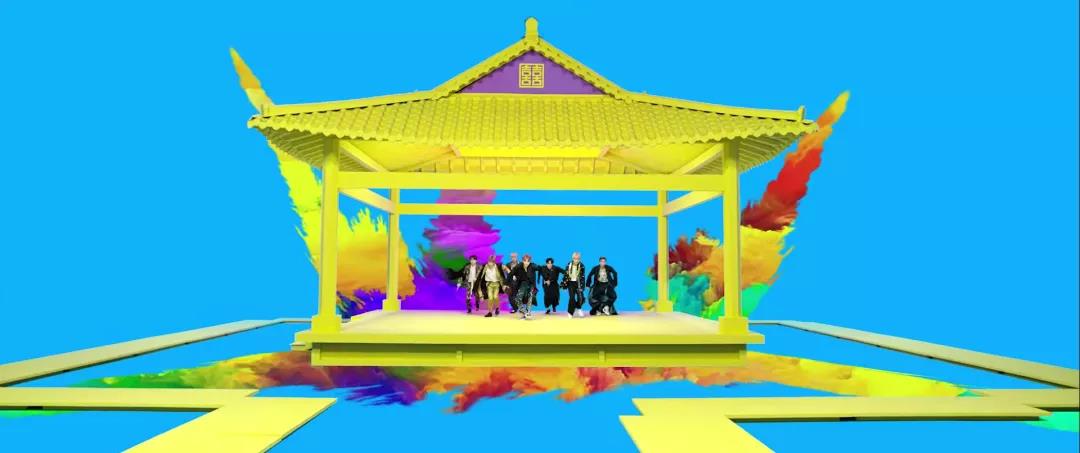
瑞士人的咖啡情结 | 外刊精读
本期精读文章来自The Economist对于瑞士咖啡储备的报道:Defending Switzerland’s coffee stockpile
瑞士之前一直维持着一个战时物资储备,其中包括食品、药品以及动物饲料等。最近瑞士政府宣布接下来不再维持紧急物资储备中的咖啡,以此来节省资金,但这引起了一些人的反对,因为咖啡对于瑞士人来说实在不可或缺。这篇短文对于这一事件进行了报道,并列举了反对者的观点。
(小标题中have-beans是作者创造出来的一个词,它改编自has-beens(过气人物),a nation of have-beans即“一个必须要有咖啡豆的国家”)
下面是对文章的全文分析:
首段介绍了事件背景:瑞士联邦国民经济供应办公室宣布接下来不再花钱维持紧急物资储备中的咖啡,以此来节省资金。
To defend their independence the Swiss have mountains, conscription and a fierce sense of self-reliance. They also have a vast stockpile of food, medicine, animal feed and cooking oil, which they have maintained since the 1920s.
瑞士人拥有群山、强制征兵制度和一股强烈的自力更生精神来捍卫自己的独立性。自20世纪20年代以来,他们还一直保持着大量的食物、药品、动物饲料和食用油储备。
This makes sieges easier to withstand, but costs a fortune.
这让瑞士人更加容易应对封锁,但这也花费不菲。
This指代上一句的内容"They also have a vast…the 1920s".
So in April the Federal Office for National Economic Supply announced a plan to trim it a little. In future, it suggested, it would no longer pay for a huge emergency supply of coffee.
因此,联邦国家经济供给办公室在今年4月份宣布了一项旨在略微削减物资储备的计划。它提议接下来它将不再为庞大的应急咖啡储备付费。
In future在英式英语中用得比较多,它的意思相当于from now on(从今以后)。在英式英语中,in future和in the future是不同的用法,in the future相当于at some time in the future(在未来的某个时间点)。
举个例子,“我相信在未来我们所有的衣服都会由塑料制成”,这句话应该翻译为:I believe that in the future all our clothes will be made of plastic. 但是不能写成:I believe that in future all our clothes will be made of plastic. 因为in future指的是“从今以后”,而句子中描述的场景目前还不能实现,只能等到未来的某一个时间点才可能成为现实。
第二段介绍了瑞士人对咖啡的喜爱和依赖程度之深。
The Alpine nation’s coffee-lovers and sellers choked on their macchiatos. Switzerland’s 8.5m residents sip around 9kg (20lb) of coffee per person annually, twice as much as Americans, according to the International Coffee Organisation.
这一阿尔卑斯山脉国家的咖啡爱好者和销售商听到消息后大为震惊,在喝玛奇朵咖啡时被噎住了。根据国际咖啡组织的数据,瑞士850万居民每年每人大约喝9千克咖啡(20磅),是美国人的两倍。
作者在这里用The Alpine nation来指代Switzerland,这样可以实现用词多样。
句子中提到的macchiato是一种常见的咖啡,了解一下不同咖啡对应的英文说法:
A Swiss breakfast without coffee would be like a Swiss army knife without a tool for removing stones from horses’ hooves.
一顿没有咖啡的瑞士早餐就像一把缺斤少两的瑞士军刀,这样的瑞士军刀少了用于清除马蹄上石头的工具。
以前瑞士军刀主要是军人在使用,他们会使用刀上的小工具来清除卡在马蹄上的石头,这一小工具甚至还有一个专门的名称hoof pick,使用瑞士军刀来清理马蹄也是一个广为人知的用法。作者在这句话中将咖啡与瑞士军刀上的工具作对比,直观说明了咖啡对瑞士早餐的重要性。
A poll on Twitter (paid for by Migros, a supermarket chain, which owns Delica, a coffee brand), found that two-thirds of respondents could barely imagine a life without coffee.
推特上的一项民意调查发现(调查由连锁超市品牌米格罗赞助,它拥有咖啡品牌“迪丽卡”),三分之二的受访者几乎无法想象没有咖啡的生活。
The federal office took note of the outrage and postponed a decision about the plan’s implementation until next year. It may abandon it altogether.
联邦办公室留意到了人们的愤怒,并将实施该计划的决定推迟到明年。它可能会完全放弃该项计划。
take note of something意思是“留意到某事,关注到某事”(to give attention to something, especially because it is important),我们可以用该表达来代替常用的pay attention to,例如:
Good employers should take note of the needs of their staff and try to meet their reasonable demands.
第三段对之前政府储备咖啡的机制进行了介绍。
The 15 big Swiss coffee retailers, roasters and importers, such as Nestlé, are required by law to store heaps of raw coffee. Together, these mandated coffee reserves amount to about 15,000 tonnes—enough for three months’ consumption.
根据法律规定,瑞士的15家大型咖啡零售商、烘焙商和进口商(例如雀巢)必须存储大量的生咖啡豆。这些法定的咖啡储备总计约15000吨,足够三个月的消耗量。
第一句中加粗的coffee不是指咖啡这种饮品,而是指咖啡豆或咖啡粉(the roasted beans or powder from which coffee is made)
The government finances the storage costs through a levy on imports of coffee. All 15 companies are in favour of maintaining the coffee reserve—as long as they are paid for it.
政府通过对咖啡进口征税来支付仓储成本。所有的15家公司都赞成维持咖啡储备——只要有人为此付钱。
结尾段列举了需要维持咖啡储备的理由。
IG Kaffee, a lobby group, asks why the government wants to scrap a stockpile that has served Switzerland so well.
游说组织IG Kaffee询问政府为何要取消咖啡这一储备,咖啡储备对于瑞士非常有帮助。
something serves somebody well是一个很好用的表达,意思是“某事物对某人很有帮助”(to be useful or helpful to someone),例如要表达“他良好的人际交往能力对他创业很有帮助”,我们可以说:His ability to get on with peopleserved him well in setting up his own business.
Shortages are possible, it warns. Low water levels of the river Rhine last year, for instance, led to bottlenecks in the coffee supply chain. A longer interruption would have “devastating” consequences for the industry.
它提醒说咖啡短缺是可能出现的。例如,去年莱茵河的低水位导致咖啡供应链遭遇瓶颈。更长的生产中断将对该行业造成“毁灭性”的后果。
Moreover, coffee has health benefits, especially in moments of stress, claims IG Kaffee. Quite so. Food shortages, were they to happen, would surely be stressful.
此外,IG Kaffee还提到咖啡具有健康益处,尤其是在人们面对压力的时候。的确如此。如果发生粮食短缺,人们肯定会感到压力很大。
moreover是一个很正式的表达,它一般用在写作中,如果是日常口语可以使用what’s more/also来代替。
quite so是一个英式用法,意思相当于exactly,用于表达对前面说法的赞同。这里之所以使用quite so这样一个略显口语化的表达是为了让文章更加生动。
最后一句假设了如果发生食物短缺,人们会感到很大压力,但这是一种不太可能发生的现象,所以用了虚拟语气。
Also, the Swiss army can hardly be expected to remain alert without coffee. Come to think of it, is there enough chocolate in case of a national emergency?
而且,如果没有咖啡,人们几乎不能指望瑞士军队能保持机敏。想一想,如果发生国家紧急情况,瑞士是否也有足够的巧克力储备?
这里特地提到巧克力是因为巧克力是瑞士著名特产,瑞士的人均巧克力消耗量也是全球最高的。对于瑞士人来说,巧克力和咖啡一样都不可或缺。





